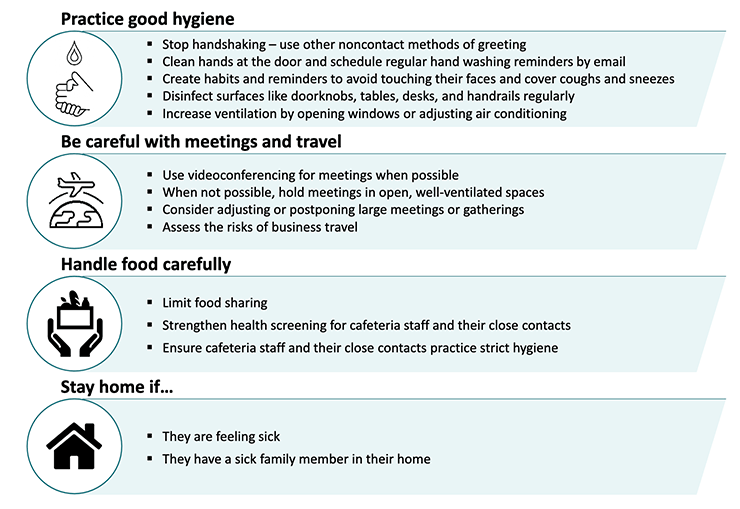Increasing Our Cleaning Procedure in High Touch Point Areas

- PhillyCAM Staff
- |
- March 11,2020
The following are some of the enhanced cleaning protocols we are implementing in keeping with the CDC recommendations.
- Daily wiping and disinfecting of touch points in Media Labs, TV Studios, Control Rooms and other spaces where computer stations are used by members and guests.
- Daily wiping and disinfecting of touch points in all other rooms occupied; door handles, elevator buttons, handrails, restroom stall doors and sinks.
- Add hand sanitizers in strategically placed areas throughout the facility.
- Strict enforcement of our ‘No Food and Drink Allowed’ Policy in Media Labs and other computer stations.
- Reinforce standard food safety awareness including frequent hand washing and making alcohol-based hand gel-rub available at kitchen areas, tables, etc. for producers to use pre and post shows.
Personal Precautions You Can Take To Protect Yourself
We also encourage everyone to observe the recommended CDC guidelines and have placed flyers in various areas in the building to help everyone to get a better understanding of the nature of the disease, its symptoms, and prevention. Reviewing and following these guidelines will help us do our part in reducing the spread of the virus.
- Wash hands often with soap and water for at least 30 seconds.
- Refrain from shaking hands, hugging, and kissing others.
- Avoid touching eyes, nose, or mouth.
- Cover the mouth and nose with a tissue when coughing or sneezing, and properly discard tissues after use. If you don’t have a tissue, cough into your elbow or cover your mouth and wash your hands afterwards.
- Clean and disinfect your phones, keyboards, and computer mice regularly.
- Avoid close contact with people who are visibly sick and stay away from poorly ventilated places.
- Contact your doctor if you have a fever or are exhibiting cold or flu symptoms & stay home if at all possible.
- While in public, try to keep a coughing distance from people, which is at least 6 feet.
- If you think you might be exhibiting symptoms of coronavirus DO NOT go to the Emergency Room. Call the hospital ahead of time and let them know about your symptoms. Going to the hospital without giving notice will spread the virus to more people and catch the hospital workers off guard. DO NOT surprise them with a visit.
- If you do have to go outside carry disinfectant and/or hand sanitizer with you.
- If you use a travel mug/bottle, be sure to disinfect it after every outing.
- Keep disinfectant by every entrance to your house.
- If possible, stay away from crowds and large public gatherings.
- If you have extra bottles of hand-sanitizer, please consider sharing them with those who do not have any. This is about working together, and minimizing community spread helps everyone within the community, including you and your loved ones. Consider making your own if you cannot buy it.
- Have 14 days of food and water in your home in case you are ordered under quarantine. There's nothing wrong with preparatory shopping in case of quarantine, but be careful not to do this once an outbreak has been declared in your city, as you may be lining up alongside sick people. At that point, it is better to shop at night/off hours, and after taking careful precautions. Or consider ordering your groceries online.
- Don't share a cup. Don't share eating utensils. Don't share a toothbrush. In fact, don't share anything that comes in direct contact with your mouth or nose.
- Keep air circulating. Dispersing droplets can keep you from getting a hefty, infectious dose. Open a window; turn on a fan.
- Use a humidifier. Keeping the humidity up will keep the protective membranes in your nose from drying out, which makes them less effective as they try to keep pathogens out. Mid-range humidity also appears to cause some viruses to decay faster.
- Always remember the top three: Disinfect your phone, don't touch your face, and wash your hands. After every outing.
